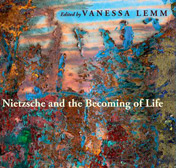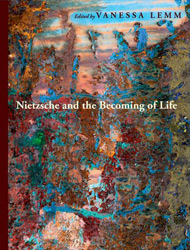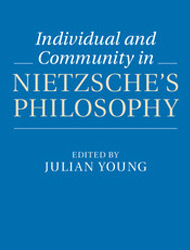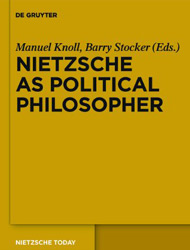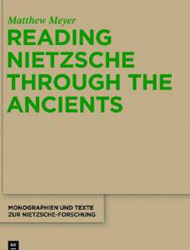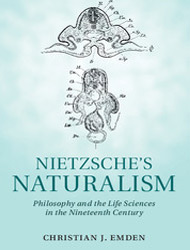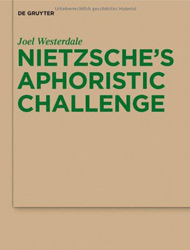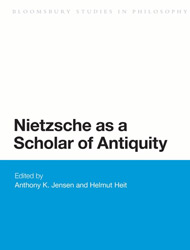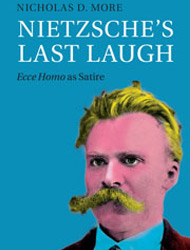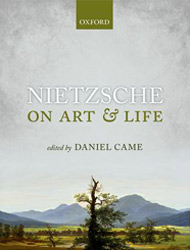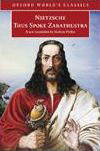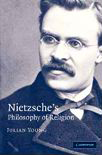Throughout his writing career Nietzsche advocated the affirmation of earthly life as a way to counteract nihilism and asceticism. This volume takes stock of the complexities and wide-ranging perspectives that Nietzsche brings to bear on the problem of life's becoming on Earth by engaging various interpretative paradigms reaching from existentialist to Darwinist readings of Nietzsche. In an age in which the biological sciences claim to have unlocked the deepest secrets and codes of life, the essays in this volume propose a more skeptical view. Life is both what is closest and what is furthest from us, because life experiments through us as much as we experiment with it, because life keeps our thinking and our habits always moving, in a state of recurring nomadism. Nietzsche's philosophy is perhaps the clearest expression of the antinomy contained in the idea of "studying" life and in the Socratic ideal of an "examined" life and remains a deep source of wisdom about living.
Recommended Readings : Page 1
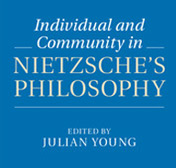 Click for more info..
Click for more info..
According to Bertrand Russell, Nietzsche's only value is the flourishing of the exceptional individual. The well-being of ordinary people is, in itself, without value. Yet there are passages in Nietzsche that appear to regard the flourishing of the community as a whole alongside, perhaps even above, that of the exceptional individual. The ten essays that comprise this volume wrestle with the tension between individual and community in Nietzsche's writings. Some defend a reading close to Russell's. Others suggest that Nietzsche's highest value is the flourishing of the community as a whole and that exceptional individuals find their highest value only in promoting that flourishing. In viewing Nietzsche from the perspective of community, the essays also cast new light on other aspects of his philosophy, for instance, his ideal of scientific research and his philosophy of language.
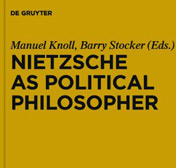 Click for more info..
Click for more info..
This collection establishes Nietzsche's importance as a political philosopher. It includes a substantial introduction and eighteen chapters by some of the most renowned Nietzsche scholars. The book examines Nietzsche's connections with political thought since Plato, major influences on him, his methodology, and his influence on subsequent thought. The book includes extensive coverage of the debate between radical aristocratic readings of Nietzsche, and more liberal or democratic readings. Close readings of Nietzsche's texts are combined with a contextualising approach to build up a complete picture of his place in political philosophy. Topics include the relevance of Bonapartism and classical liberalism, Nietzsche on Christianity, the cultural history of Germany, the Übermensch, ethics and politics in Nietzsche, and the controversial question of his political preferences and affinities. Nietzsche's political thought is compared with that of Humboldt, Weber and Foucault. The book is essential reading for anyone concerned with Nietzsche's thought, political philosophy, and the history of political ideas.
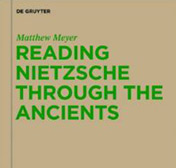 Click for more info..
Click for more info..
Nietzsche’s work was shaped by his engagement with ancient Greek philosophy. Matthew Meyer analyzes Nietzsche’s concepts of becoming and perspectivism and his alleged rejection of the principle of non-contradiction, and he traces these views back to the Heraclitean-Protagorean position that Plato and Aristotle critically analyze in the Theaetetus and Metaphysica IV, respectively. At the center of this Heraclitean-Protagorean position is a relational ontology in which everything exists and is what it is only in relation to something else. Meyer argues that this relational ontology is not only theoretically foundational for Nietzsche’s philosophical project, in that it is the common element in Nietzsche’s views on becoming, perspectivism, and the principle of non-contradiction, but also textually foundational, in that Nietzsche implicitly commits himself to such an ontology in raising the question of opposites at the beginning of bothHuman, All Too Human and Beyond Good and Evil.
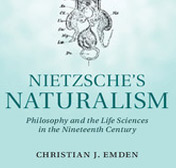 Click for more info..
Click for more info..
This book explores Nietzsche's philosophical naturalism in its historical context, showing that his position is best understood against the background of encounters between neo-Kantianism and the life sciences in the nineteenth century. Analyzing most of Nietzsche's writings from the late 1860s onwards, Christian J. Emden reconstructs Nietzsche's naturalism and argues for a new understanding of his account of nature and normativity. Emden proposes historical reasons why Nietzsche came to adopt the position he did; his genealogy of values and his account of a will to power are as much influenced by Kantian thought as they are by nineteenth-century debates on teleology, biological functions, and theories of evolution. This rich and wide-ranging study will be of interest to scholars and students of Nietzsche, the history of modern philosophy, intellectual history, and history of science.
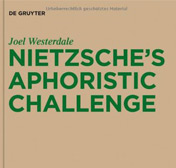 Click for more info..
Click for more info..
The “aphoristic form causes difficulty,” Nietzsche argued in 1887, for “today this form is not taken seriously enough.” Nietzsche’s Aphoristic Challenge addresses this continued neglect by examining the role of the aphorism in Nietzsche’s writings, the generic traditions in which he writes, the motivations behind his turn to the aphorism, and the reasons for his sustained interest in the form. This literary-philosophical study argues that while the aphorism is the paradigmatic form for Nietzsche’s writing, its function shifts as his thought evolves. His turn to the aphorism in Human, All Too Human arises not out of necessity, but from the new freedoms of expression enabled by his critiques of language and his emerging interest in natural science. Yet the model interpretation of an aphorism Nietzsche offers years later in On the Genealogy of Morals tells a different story, revealing more about how the mature Nietzsche wants his earlier works read than how they were actually written. This study argues nevertheless that consistencies emerge in Nietzsche’s understanding of the aphorism, and these, perhaps counter-intuitively, are best understood in terms of excess. Recognizing the changes and consistencies in Nietzsche’s aphoristic mode helps establish a context that enables the reader to navigate the aphorism books and better answer the challenges they pose.
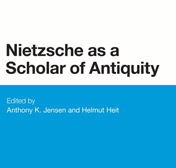 Click for more info..
Click for more info..
Typically, the first decade of Friedrich Nietzsche's career is considered a sort of précis to his mature thinking. Yet his philological articles, lectures, and notebooks on Ancient Greek culture and thought - much of which has received insufficient scholarly attention - were never intended to serve as a preparatory ground to future thought. Nietzsche's early scholarship was intended to express his insights into the character of antiquity. Many of those insights are not only important for better understanding Nietzsche; they remain vital for understanding antiquity today. Interdisciplinary in scope and international in perspective, this volume investigates Nietzsche as a scholar of antiquity, offering the first thorough examination of his articles, lectures, notebooks on Ancient Greek culture and thought in English. With eleven original chapters by some of the leading Nietzsche scholars and classicists from around the world and with reproductions of two definitive essays, this book analyzes Nietzsche's scholarly methods and aims, his understanding of antiquity, and his influence on the history of classical studies.
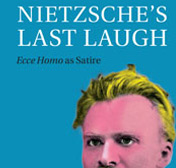 Click for more info..
Click for more info..
Nietzsche's Ecce Homo was published posthumously in 1908, eight years after his death, and has been variously described ever since as useless, mad, or merely inscrutable. Against this backdrop, Nicholas D. More provides the first complete and compelling analysis of the work, and argues that this so-called autobiography is instead a satire. This form enables Nietzsche to belittle bad philosophy by comic means, attempt reconciliation with his painful past, review and unify his disparate works, insulate himself with humor from the danger of 'looking into abysses', and establish wisdom as a special kind of 'good taste'. After showing how to read this much-maligned book, More argues that Ecce Homo presents the best example of Nietzsche making sense of his own intellectual life, and that its unique and complex parody of traditional philosophy makes a powerful case for reading Nietzsche as a philosophical satirist across his corpus.
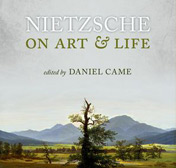 Click for more info..
Click for more info..
Nietzsche was not interested in the nature of art as such, or in providing an aesthetic theory of a traditional sort. For he regarded the significance of art to lie not in l'art pour l'art, but in the role that it might play in enabling us positively to 'revalue' the world and human experience. This volume brings together a number of distinguished figures in contemporary Anglo-American Nietzsche scholarship to examine his views on art and the aesthetic in the context of this wider philosophical project. All of the major themes of Nietzsche's aesthetics are discussed: art and the affirmation of life, the relationship between art and truth, music, tragedy, the nature of aesthetic experience, the role of art in Nietzsche's positive ethics, his critique of romanticism, and his ambivalent attitude towards Richard Wagner
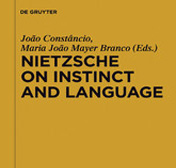 Click for more info..
Click for more info..
The volume offers various considerations of Nietzsche's attempt to connect language to the instinctive activity of the human body. In focusing on how Nietzsche tries to dissolve the traditional opposition between instinct and language, as well as between instinct and consciousness and instinct and reason, the different papers address a great variety of topics, e.g. morality, value, the concept of philosophy, dogmatism, naturalization, metaphor, affectivity and emotion, health and sickness, tragedy, and laughter. Among the authors: Scarlett Marton, Werner Stegmaier, Patrick Wotling, and many others.
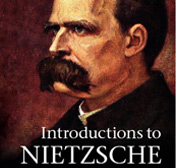 Click for more info..
Click for more info..
Friedrich Nietzsche (1844 1900) is one of the most important philosophers of the last two hundred years, whose writings, both published and unpublished, have had a formative influence on virtually all aspects of modern culture. This volume offers introductory essays on all of Nietzsche's completed works and also his unpublished notebooks.
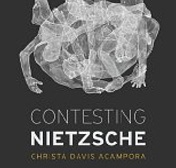 Click for more info..
Click for more info..
In this groundbreaking work, Christa Davis Acampora offers a profound rethinking of Friedrich Nietzsche’s crucial notion of the agon. Analyzing an impressive array of primary and secondary sources and synthesizing decades of Nietzsche scholarship, she shows how the agon, or contest, organized core areas of Nietzsche’s philosophy, providing a new appreciation of the subtleties of his notorious views about power. By focusing so intensely on this particular guiding interest, she offers an exciting, original vantage from which to view this iconic thinker: Contesting Nietzsche.
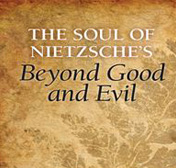 Click for more info..
Click for more info..
This book presents a provocative new interpretation of Beyond Good and Evil, arguably Nietzsche's most important work. The problem is that it appears to express merely a loosely connected set of often questionable opinions. Can Nietzsche really be an important philosopher if this is his most important book? Maudemarie Clark and David Dudrick address this question with a close reading that emphasizes how Nietzsche writes. They argue that the first part of Beyond Good and Evil presents coherent and interconnected arguments for subtle and well-thought-out positions on traditional issues. Nietzsche's infamous doctrine of the will to power turns out to be a compelling account of the structure and origin of the human soul. And although he rejects some aspects of traditional philosophy, Nietzsche's aim is to show how philosophy's traditional aspirations to seek both the true and the good can be fulfilled. Beyond Good and Evil turns out to be a major work of philosophy and Nietzsche's masterpiece.
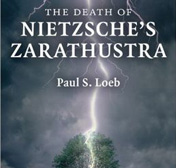 Click for more info..
Click for more info..
In this 2010 study of Nietzsche's Thus Spoke Zarathustra, Paul S. Loeb proposes a new account of the relation between the book's literary and philosophical aspects and argues that the book's narrative is designed to embody and exhibit the truth of eternal recurrence.
 Click for more info..
Click for more info..
On the Genealogy of Morality is Nietzsche's most influential, provocative, and challenging work of ethics. In this volume of newly commissioned essays, fourteen leading philosophers offer fresh insights into many of the work's central questions: How did our dominant values originate and what functions do they really serve? What future does the concept of "evil" have - and can it be revalued? What sorts of virtues and ideals does Nietzsche advocate, and are they necessarily incompatible with aspirations to democracy and a free society? What are the nature, role, and scope of genealogy in his critique of morality - and why doesn't his own evaluative standard receive a genealogical critique? Taken together, this superb collection illuminates what a post-Christian and indeed post-moral life might look like, and asks to what extent Nietzsche's Genealogy manages to move beyond morality.
-
Nietzsche on Language, Consciousness, and the BodyBy Christian J. Emden
University of Illinois Press, 2005
Reviewed by Daniel Blue"...drawing on much previously unpublished and undiscussed Nietzsche material, Emden examines the role of metaphor and interpretation, reasserting the relevance of rhetoric to philosophy, in consonance with Nietzsche's own statements and practices"
-
Nietzsche's New DarwinismBy John Richardson
University of Illinois Press, 2005
Reviewed by Bradley Park (St. Mary's College of Maryland)"...The strength of Richardson’s book is that it does not merely discuss the influence of Darwin’s thought on Nietzsche or catalog points of similarity and difference"
-
Thus Spoke ZarathustraBy Friedrich NietzscheA new translation by Graham Parkes
Oxford University Press, 2005
Reviewed by Horst HutterThis new translation of Nietzsche’s magnum opus is by far the best available in the English language. It should find its way to the desk of all students who do not have access to the original German.
-
Nietzsche’s Philosophy of ReligionBy Julian YoungCambridge University Press, 2006
Reviewed by Horst Hutter,
Concordia UniversityEvery student of Nietzsche in the Anglophone world should read this book. It is a most able treatment of a much-ignored and much-misunderstood topic close to the very heart of the writings of this seminal thinker.


